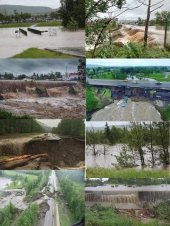
 20
20




"When the whole world is running towards a cliff, he who is running in the opposite direction appears to have lost his mind." C.S. Lewis
Visit https://themaineingredient.com for organic, premium dried culinary herbs that are grown, processed, and packaged in the USA.

 14
14




- Tim's Homestead Journal - Purchase a copy of Building a Better World in Your Backyard - Purchase 6 Decks of Permaculture Cards -
- Purchase 12x Decks of Permaculture Cards - Purchase a copy of the SKIP Book - Purchase 12x copies of Building a Better World in your Backyard
 14
14




 13
13




 18
18




 17
17





 15
15




![Filename: martta-wendelin-klassikko.jpg
Description: [Thumbnail for martta-wendelin-klassikko.jpg]](/t/266373/a/250476/martta-wendelin-klassikko.jpg)
 16
16




![Filename: 1379532.jpg
Description: [Thumbnail for 1379532.jpg]](/t/266373/a/250477/1379532.jpg)
 12
12




![Filename: images.jpg
Description: [Thumbnail for images.jpg]](/t/266373/a/250499/images.jpg)
 16
16




 13
13




'What we do now echoes in eternity.' Marcus Aurelius
How Permies Works Dr. Redhawk's Epic Soil Series
 13
13




"When the whole world is running towards a cliff, he who is running in the opposite direction appears to have lost his mind." C.S. Lewis
Visit https://themaineingredient.com for organic, premium dried culinary herbs that are grown, processed, and packaged in the USA.








 14
14




'What we do now echoes in eternity.' Marcus Aurelius
How Permies Works Dr. Redhawk's Epic Soil Series
 18
18




I want to be 15 again …so I can ruin my life differently.
 5
5




Kaarina Kreus wrote:We think we need a lot of light fixtures. But actually you can enjoy the evening meal in candlelight, have a glass of wine and a chat by the light of fire. Read a book with a little reading lamp. Enjoy the garden in the dusk or moonlight. Might even see the stars!
 10
10




Invasive plants are Earth's way of insisting we notice her medicines. Stephen Herrod Buhner
Everyone learns what works by learning what doesn't work. Stephen Herrod Buhner
 5
5




Annie Collins wrote:
Kaarina Kreus wrote:
Kaarina, I love the painting with this post, the one with the walkway in the moonlight! Did you paint it?
No, it is by late Martta Wendelin. My talent at drawing resembles a toddler's 😄
 16
16




I want to be 15 again …so I can ruin my life differently.
 12
12




John F Dean wrote:I find that people often forget that a standard water heater contains water.
 6
6




I want to be 15 again …so I can ruin my life differently.
 1
1




Kaarina Kreus wrote:No, it is by late Martta Wendelin. My talent at drawing resembles a toddler's 😄
 4
4








Kaarina Kreus wrote:Annie, she drew a lot. Here's a link.
https://www.korttientalo.fi/27-martta-wendelin
 18
18







 11
11




"The one small garden of a free gardener was all his need and due, not a garden swollen to a realm; his own hands to use, not the hands of others to command." -Samwise Gamgee, J.R.R. Tolkien
 10
10




Celtic/fantasy/folk/shanty singing at Renaissance faires, fantasy festivals, and other events in OR and WA, USA.
RionaTheSinger on youtube.
Pop-up garden/vintage+ yard stand owner.
 8
8




 8
8




 6
6




I want to be 15 again …so I can ruin my life differently.
 10
10




Teacher, builder, grower, consultant, designer.
https://gofund.me/098fa818
Check out the homesteading bundle here! https://permies.com/w/homesteading-bundle?f=720
 7
7




Invasive plants are Earth's way of insisting we notice her medicines. Stephen Herrod Buhner
Everyone learns what works by learning what doesn't work. Stephen Herrod Buhner

 6
6




Kena Landry wrote:resilience is first and foremost a question of community.

How Permies works: https://permies.com/wiki/34193/permies-works-links-threads
My projects on Skye: The tree field, Growing and landracing, perennial polycultures, "Don't dream it - be it! "
 7
7




Nancy Reading wrote:
Kena Landry wrote:resilience is first and foremost a question of community.
This!!
Having your own home and family prepared for the worst is one thing, but things are so much easier as a community. I've been impressed by the people helping in the aftermath of the recent storms in the US, and forest fires in Colombia - churches and farmers working together to do what is necessary to support the whole community with protection, clean up, food and other forms of help.

source
What can be done to help build these community connections in advance? Do you know who your neighbours are and what resources they have or might need? If you need to leave your house due to disaster, where would you shelter in the community? Local shops are a lifeline, but only exist if people use them. Community centres and sports facilities are often used in times of disaster, schools and churches are other options. Maybe central facilities of a community shelter with electricity, and a form of communication that works in the case of mobile phone network failure could be organised.
Teacher, builder, grower, consultant, designer.
https://gofund.me/098fa818
Check out the homesteading bundle here! https://permies.com/w/homesteading-bundle?f=720
 10
10




 13
13











 12
12




 7
7




 6
6




 3
3




I have read that animals are incredibly good at getting to safety if you let them free to do so. You might not get them back after, but at least they'd have a fighting chance if there is an unexpected immediate evacuation order.Donna Lynn wrote: But with turkeys and chickens who are not easy to catch during daylight; and dogs and new cats who don't all get along well together yet, we really don't have a good current plan to evacuate all of us quickly and safely.
Visit Redhawk's soil series: https://permies.com/wiki/redhawk-soil
How permies.com works: https://permies.com/wiki/34193/permies-works-links-threads
 5
5





|
Do Re Mi Fa So La Tiny Ad
Learn Permaculture through a little hard work
https://wheaton-labs.com/bootcamp
|





